When a major crime receives media coverage in Bogotá, Colombia, public response often involves wishing violent retribution on the perpetrator. It is not unusual to see the comment sections of news stories replete with statements like, “Let me alone with them for five minutes!” or “We have to chop the hands off thieves so they don’t steal again…”. The individuals who write these phrases understand justice as a quick and brutal punishment visited upon a deserving criminal offender. Just over a thousand kilometres northeast, however, justice is incumbent on harmonic living.
On the Guajira Peninsula, an arid expanse where the dunes of the desert meet the Caribbean Sea, the Wayúu People make up the largest Indigenous community in both Colombia and Venezuela. This millenary tribe has survived for centuries with relative independence from any national government in large part due to their socio-judicial framework, which has allowed the Wayúu to preserve cultural heritage, despite loss of land and widespread evangelization since Spanish colonization of the 18th and 19th centuries.
The most prominent feature of Wayúu social practice is its collective nature, dictated by cultural guidelines that have long been passed orally from generation to generation.1 At a young age, Wayúu children learn these customs that reflect centuries of community-based observation. Unlike mainstream practice in the rest of Colombia, Wayúu customary law emanates from the people, instead of a leader, a guiding council, or a judge and jury. As a result, justice must be determined by maünnaa, a system of compensation.2
Unlike mainstream practice in the rest of Colombia, Wayúu customary law emanates from the people…
No matter the nature of a crime, a wrongdoer must provide goods or money in exchange for forgiveness from their victim and the members of that victim’s family. Price for a crime is determined through intermediation performed by a pütchipü’ü, or arbitrator. According to Wayúu myth, the original pütchipü’ü was a bird who mediated between the gods and the first people to yield humankind. In keeping with their mythic counterpart, a pütchipü’ü must deftly navigate community rules to reach consensus. Ability to earn the respect and trust of involved parties is paramount, after all the pütchipü’ü is not a judge, and should not take sides during resolution of a dispute.
The pütchipü’ü is expected to maintain peace and avoid future conflict within the community through compensation.3 The price that a perpetrator must pay is determined by the severity of the committed infraction and how well the parties are able to negotiate. Family is extremely important throughout the process, as they not only share the blame when a relative commits wrongdoing, but, in some cases, are expected to collectively pay the price that is pacted in the presence of the pütchipü’ü. Negotiation terms range in amount and mode of delivery — in some cases, families have up to fifteen years to fully pay what is owed. In other cases, negotiations do not end successfully. Families who do not engage the help of a pütchipü’ü, or who take it upon themselves to avenge a victim, can sometimes start feuds that last for years and may even result in groups leaving the territory to protect their lives and property.4 In more cases than not, however, negotiation culminates in a handshake and maintains harmony within the community.
The system of maünnaa has enabled the Wayúu to solve conflicts without the need for police or a judiciary.5 Despite a tragic history of colonization in the region, that long tried to replace Wayúu sacred traditions with Western ideologies, these practices have survived and continue to nurture a peaceful way to resolve conflict on the Guajira Peninsula. As someone born on the Peninsula, who has spent equal amounts of time there and in Bogotá, I am just beginning to reconcile the differing social rules and customs of the two regions. I will always be amazed at how many Colombians see the Wayúu as uneducated and backward, because, for me, their traditions represent the resilience of the human spirit and the power of forgiveness.
- Ricardo Colmenares Olívar, “Sistema de Justicia Penal Formal y el Derecho Consuetudinario Wayuu,” (Frónesis 13.1, 2006).
- Cris Velásquez and Edward Quintero, “La conciliación en el sistema normativo wayúu como expresión del poder de la palabra y la retórica mediada por el pütchipu o palabrero,” (Comunicación y Ciudadanía, 2013), 6.
- Yolanda Fandiño Barros, “La Cosmovisión de la Justicia Wayúu, ¿Una Justicia Diferente?” (Revista Amauta 12.24, 2014).
- Weilder Guerra Curvelo, “Los conflictos interfamiliares Wayuu,” (Frónesis 13.1, 2006).
- In 2010, maünnaa was recognized by the United Nations Educational, Scientific, and Cultural Organization (UNESCO) as part of the Intangible Cultural Heritage of Humanity.



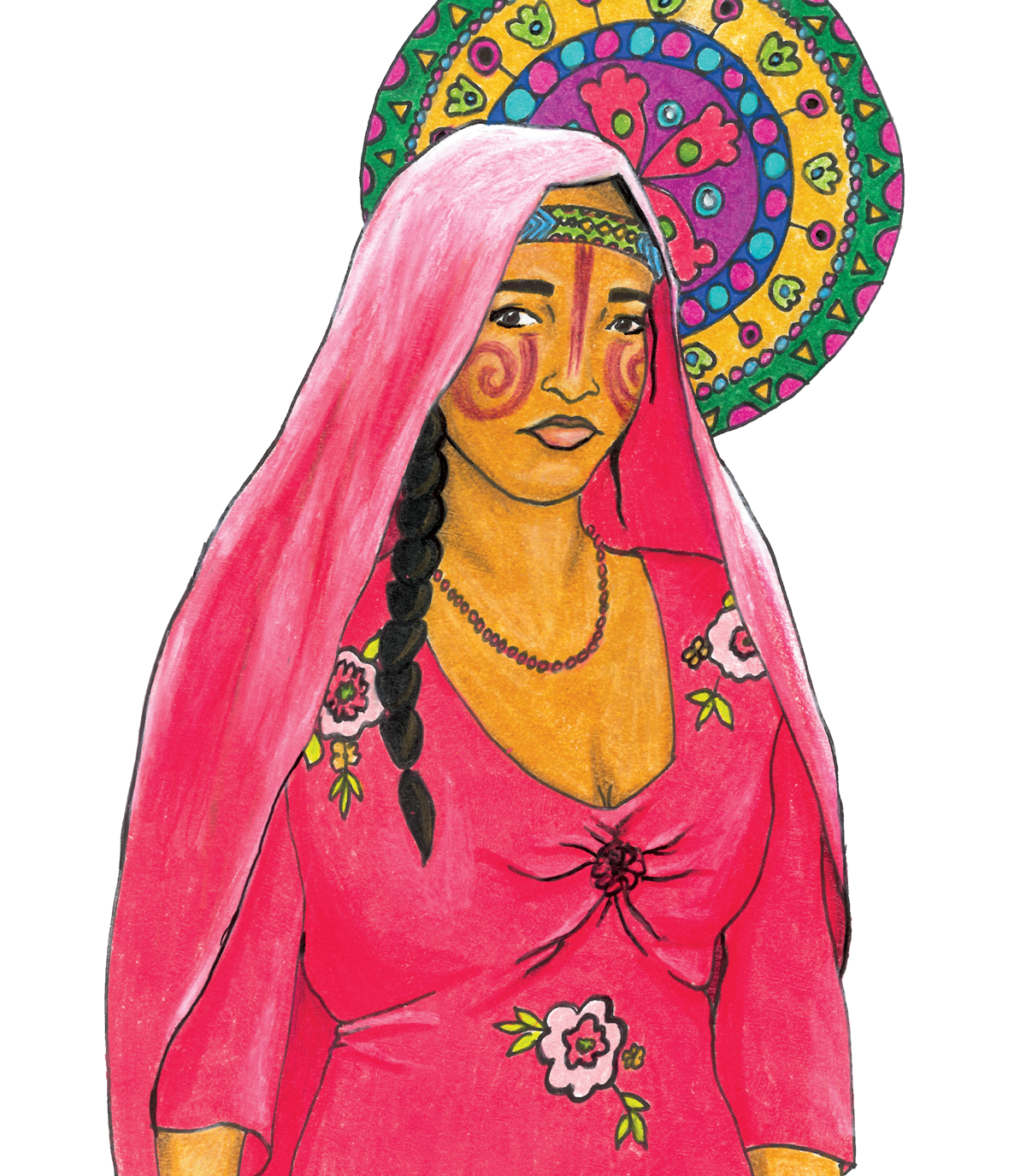


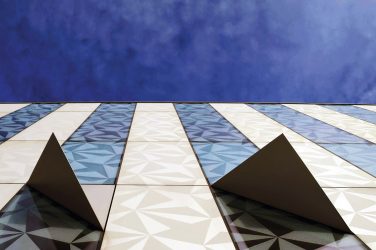
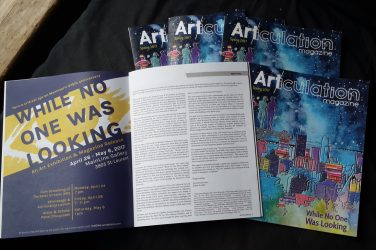
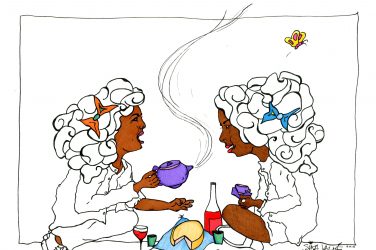
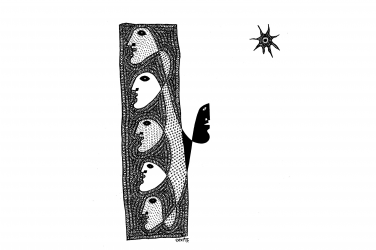
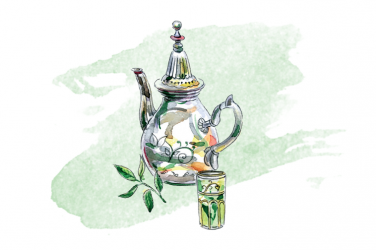
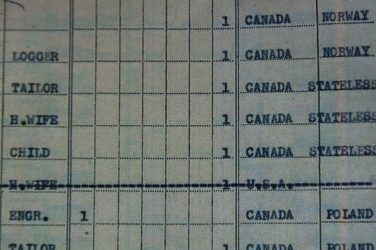
Show Comments (1)
Jeff Kampf
Very interesting. This is the “ancient” way of reconciliation. It’s a proven, fair, balanced way of achieving social justice. Long before “an eye for an eye ” perception created by societies who’d rather instill fear by creating fantasies of omnipotence. Great article.